Personal Bodyguard
Hearing the news of Corwin Noble’s passing was a dark day for me. I was fortunate to have been the recipient of this humble man’s wealth of knowledge when I was starting out as Personal Bodyguard in the Personal Protection field. He taught me so much and answered question after question; graciously dispensed wisdom that I rely upon to this very day.
His death five years ago at the age of 54 meant the world had lost one of the “good guys.” Corwin had dedicated his life to the protection and security of other people. He worked for the Police department, was on a SWAT team, and served in private protection in the US, the Middle East, and in Latin and Central America.
I hope you enjoy this article; it is meant to recognize Corwin’s contributions to a field I have come to know and love. His lessons made me the man I am today, and I’m honored to have known him and to be able to call him not only my mentor but my friend. Here’s to you, Corwin.
Many times I am asked, “What makes a good Personal Bodyguard and who would you have on your team?” I receive resumes every week from all types of individuals. Each resume attempts to show their skills and experience whether it is military, police, civilian, or corporate experience. But what personal attributes am I as a protector looking for that I would place my life and the life of a client in their hands? Let’s look at several factors.
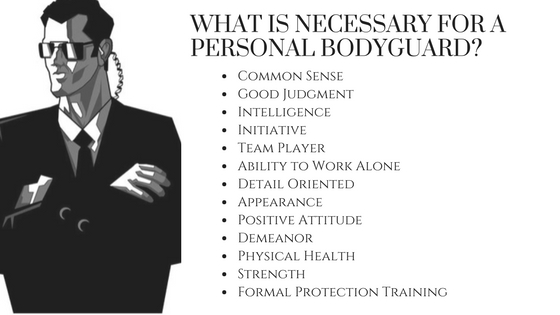
Personal Bodyguards Need Common Sense
The first and foremost I attribute I am looking for in someone who wants to be a personal bodyguard is good common sense and excellent judgment. He or she must be intelligent because this job is a thinking person’s game. You are trying to keep our client out of harm’s way and this is accomplished at length by using your brain to analyze a situation, having the forethought to identify possible threats, and having the common sense needed to apply your skills efficiently and effectively.
They must have initiative and be a team player as a protective team must be a cohesive unit. Of equal importance in working as part of a team is the ability to work alone. On many assignments, you may be by yourself. One-on-one protective assignments are quite common, or you may be assigned with just a security driver that always stays with the vehicle.
Personal Bodyguard Qualifications
You must be detail oriented and keep a good personal appearance- never attempt to dress better than a client but know what is appropriate wear and the right clothing for your environment. A personal bodyguard must have a positive attitude- you will work long, stressful hours, often with no thanks other than the fact that everyone is alive at the end of the day.
Demeanor comes with a positive attitude- how you conduct yourself with a client and more importantly how you represent yourself with the client at all times. You are the closest person to the client at all times, and many times their direct representative. This allows you the Protector to always be “in position” and ready to act as necessary.
Physical health and strength are an absolute must to conduct a proper protective assignment. I can attest that this job is long hours spent being constantly on alert for any dangers. It takes a physical toll on the body each day and you must maintain your physical health and strength to properly survive as a Protector. You never know when an incident may occur and when you have to put into practice those physical attributes and strengths to remove yourself and your protectee from a dangerous or given situation.
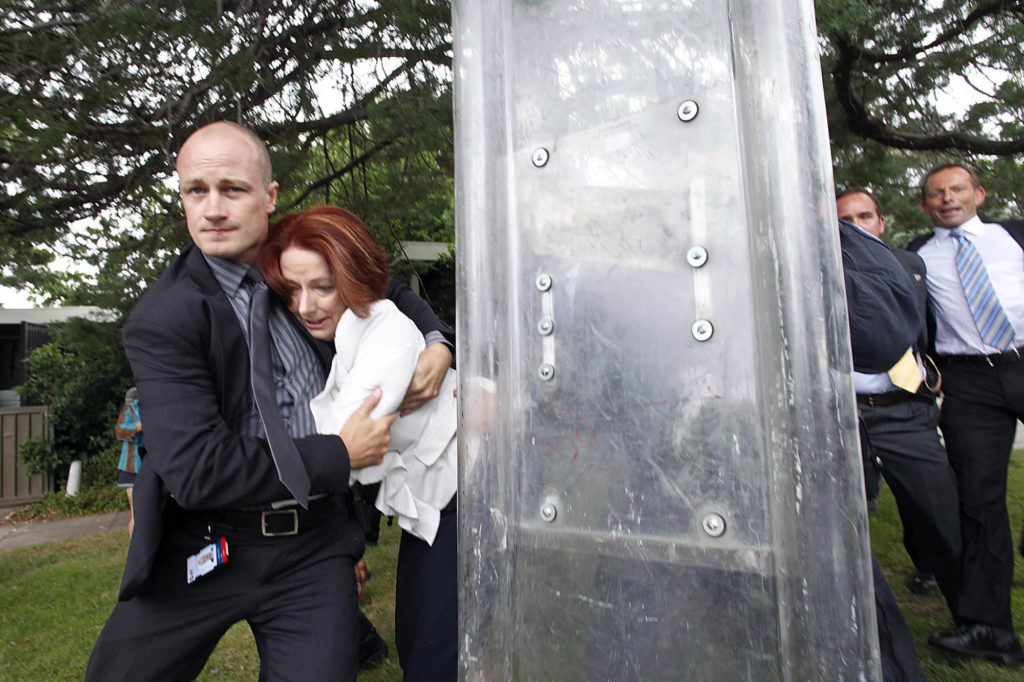
Having a background in security and security procedures is always important. Many times I am asked “do I have to have military or special operations unit training. Do I have to be a former law enforcement officer?” My answer has always been that having a solid formal background with the military or law enforcement is good but not always the best or necessary. Those life experiences that you received while being in combat or on patrol handling dangerous situations as a police officer are good but that does not always make you a Protector.
A Personal Bodyguard Needs Formal Protection Training
Consider this when reflecting on my previous statement- many years ago, I was assigned to conduct training for the United States Federal Police (now a part of the U.S. Homeland Security). Part of the training I conducted was a scenario in which Air Soft guns were used during a simulation of a direct attack on the principal.
The police officers in the formation did what came naturally: when the shots came they instinctively took cover and returned fire, leaving the protectee standing alone taking direct hits! Instinct is always a factor when stress is involved, but overall how you react to any given situation comes from a combination of instinct, life experience, and training.
Often your training can hold just as much if not more value than your background. Example, I know an individual that had no police or military background. In fact, his only experience was as the security manager for a major hotel chain in the city of Minneapolis.
But upon beginning his career as a personal bodyguard and as a result of good, continuous training and experience he has been acting as the Protector for many major celebrities for the past decade. He has been living and working in a high threat environment as his first major assignment and doing a fantastic job at it. He is a Protector!
Formal Protection Training is a necessary process for a Protector. Just like any career the education and knowledge you receive are the primary tools you will rely on for an assignment. I have attended many prominent schools over the last 30 years such as Executive Protection Institute; Executive Security International; R.L. Oatman & Associates; Tactical Explosive Entry School (formally TEES).
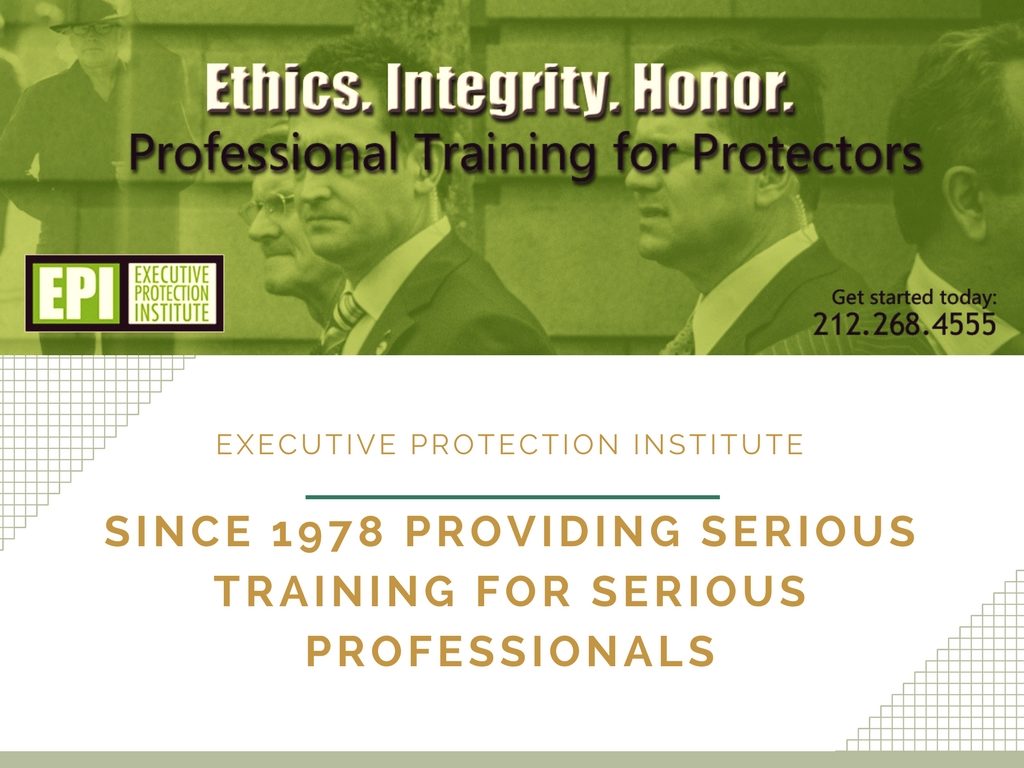
All of these schools were excellent with great instructors. It is important to continue attending various schools in order to increase your knowledge base. You take something away from every school that you attend. You will often hear me referring to this collective education as “My Toolbox”. It encompasses all your knowledge, training, and experience, and as you expand your “Toolbox” you will reach that goal of becoming a professional Protector.
Driving schools are where you will receive one of the most beneficial educations, and the resultant skill set is one of the most important aspects that I look for in a member of my teams or when considering someone for hire. Daily travel by roadway is a way of life for everyone. As a personal bodyguard, you need to know both defensive and offensive driving skills.
I personally place more emphasis on defensive driving skills. In most cities and assignments you are not going to need to employ a bootleg turn, PIT maneuver or car fighting, but those skills are important depending on the location in which you are providing services such as in a high-risk country or city. However, defensive driving is something you can employ each day no matter where you are transporting the protectee. There are excellent schools where you can learn comprehensive, solid offensive and defensive driving skills such as Tony Scotti or Bill Scott Raceway (BSR).
A Personal Bodyguard Needs Basic Medical Knowledge
One of the most important aspects of training that I advise all individuals who want to enter into the field is, you need to have some kind of medical knowledge.
At the most minimum level, a personal bodyguard should have CPR and basic first aid training. I would suggest that anyone who wishes to become a professional bodyguard to have training and certification as an Emergency Medical Technician.
This training can be received through most community colleges and there are also many private schools that provide the training. You as a Protector are more likely to have a medical incident than an outright assault with your protectee, and having a good medical background when that happens can save a life, even your own.
Last on the list of what makes a Protector is good defensive tactical skills and firearms skills. I placed them last because having those skills in my toolbox is important but in 30 years of providing personal protection, I have not had to physically defend my client or deploy my weapon in a tactical role on assignment in a non-high risk environment.
You’ll notice that I say “defensive skills” instead of “martial arts skills”. I receive resumes and phones calls daily from individuals who immediately state how many different belts they hold in how many different martial arts. True, these are a great tool to have in your repertoire but not the most necessary skill to have as a Protector.
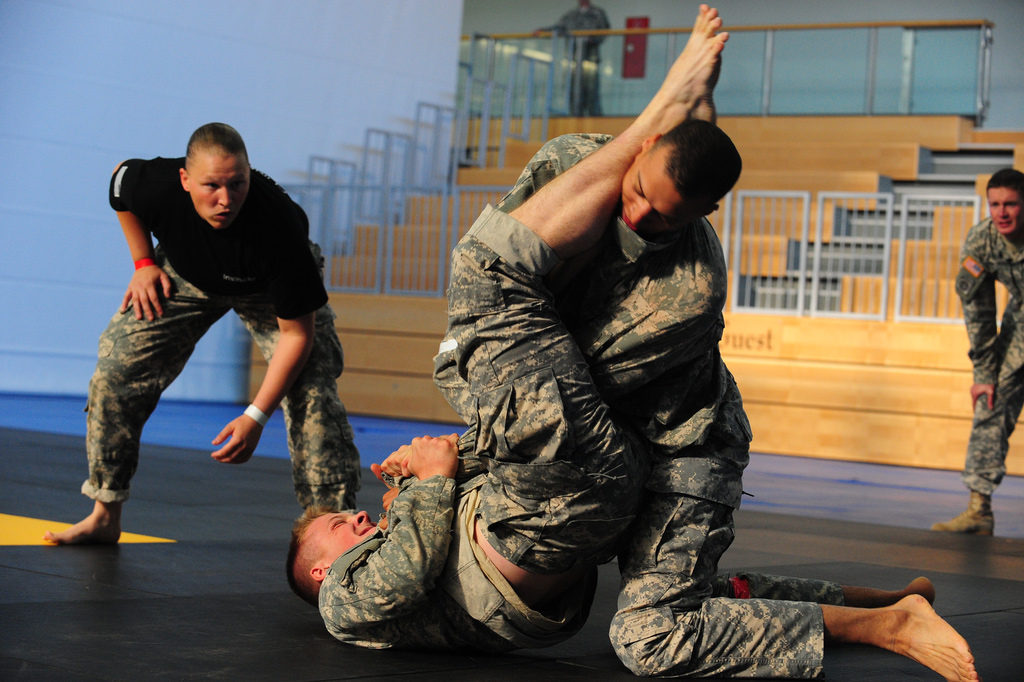
I stress that you do need to have the skill base to defend yourself and your protectee if necessary, but it is not your primary tool. Too many times clients and protectors think along the lines of “I am skilled in all these martial arts and therefore you will be safe from harm.” Depending on your threat assessment and risk analysis, have you done all that is possible to keep your client safe from harm in the first place?
A Personal Bodyguard Needs Firearm Training
Last is included firearms training, and you see that I have emphasized you should carry a firearm only if you are legally allowed to do so. I have worked throughout the world over a span of more than 30 years, always complying with the host country’s regulations, and I can count on one hand the countries that allowed me to legally carry a firearm.
Does that mean that I provided protection in high-risk areas or countries without a firearm? YES! As a Protector I have worked in Mexico and in that country possession of even one round of ammunition can carry a very stiff criminal penalty and I for one am not going to sit in a Mexican jail. During my time in Mexico I have never lost a protectee nor has harm come to him or her.
If you are going to carry a firearm on a protective assignment then have the proper training and, more importantly, the proper licenses and permits. How many times have you seen a news report where the personal bodyguard of a celebrity has been arrested for illegally carrying a firearm outside of his permitted jurisdiction?
How many times have you heard something along the lines of, “Well I have a permit in California so…”The answer from law enforcement as the bodyguard is incarcerated and the client is embarrassed is more or less, “Well you are not licensed here in New York!”.
In addition to your “Toolbox”, I encourage you to utilize the following seven rules. Take a moment to reflect on how they may affect the chances of survival for you and your protectee, and how this affects your status as a Protector.
THE SEVEN RULES OF A PROTECTOR
1. ASSUME NOTHING, QUESTION EVERYTHING
2. STAY WITH THE PRINCIPAL
3. CONTINUALLY SCAN YOUR AREA OF RESPONSIBILITY
4. ALWAYS HAVE A PLAN OF ACTION
5. PROJECT A FIRM POSITIVE IMAGE
6. YOU MUST PROTECT YOURSELF BEFORE YOU CAN PROTECT THE PRINCIPAL
7. MAINTAIN A SURVIVAL STATE OF MIND, COMPLACENCY AND BOREDOM ARE KILLERS!
This article was written by Corwin K Nobel
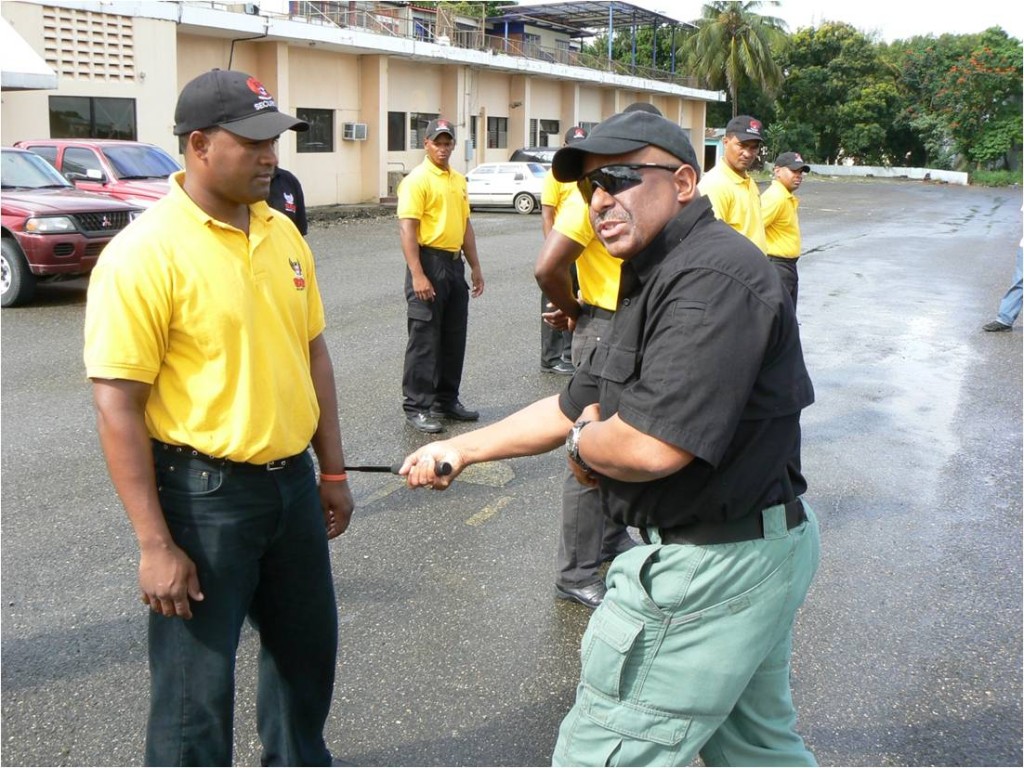
Warmest Regards
Founder of Bodyguard Careers
Harlan (Hucky) Austin

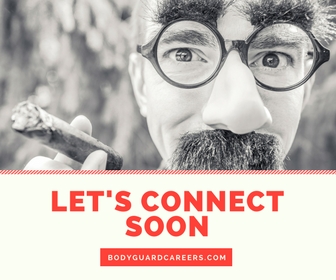
thank you for the information.
I am interested be in bodyguard
Very informative,